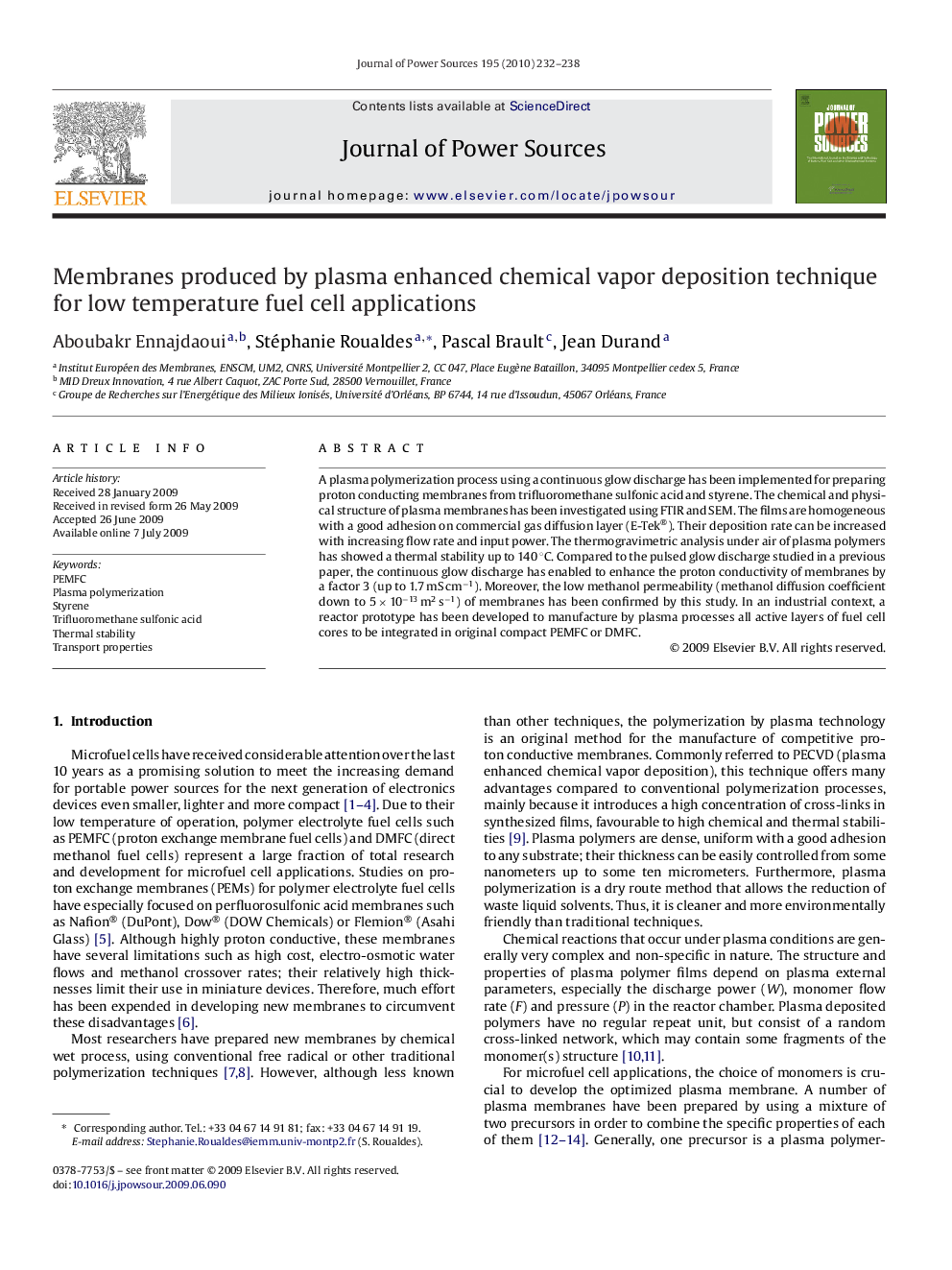| Article ID | Journal | Published Year | Pages | File Type |
|---|---|---|---|---|
| 1293973 | Journal of Power Sources | 2010 | 7 Pages |
A plasma polymerization process using a continuous glow discharge has been implemented for preparing proton conducting membranes from trifluoromethane sulfonic acid and styrene. The chemical and physical structure of plasma membranes has been investigated using FTIR and SEM. The films are homogeneous with a good adhesion on commercial gas diffusion layer (E-Tek®). Their deposition rate can be increased with increasing flow rate and input power. The thermogravimetric analysis under air of plasma polymers has showed a thermal stability up to 140 °C. Compared to the pulsed glow discharge studied in a previous paper, the continuous glow discharge has enabled to enhance the proton conductivity of membranes by a factor 3 (up to 1.7 mS cm−1). Moreover, the low methanol permeability (methanol diffusion coefficient down to 5 × 10−13 m2 s−1) of membranes has been confirmed by this study. In an industrial context, a reactor prototype has been developed to manufacture by plasma processes all active layers of fuel cell cores to be integrated in original compact PEMFC or DMFC.
